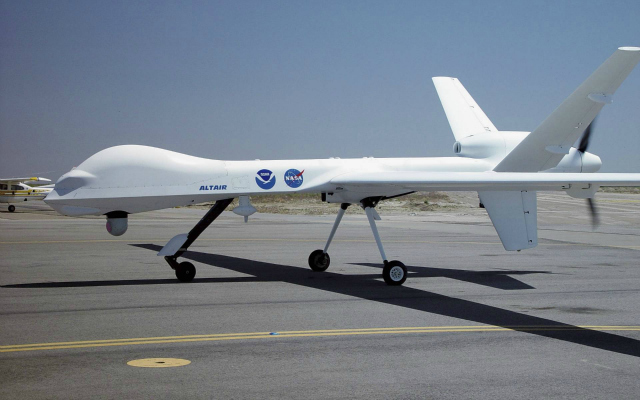Drone Warfare. Killing by Remote Control
The targeted killing of insurgents of Al-Qaeda and the Taliban with killer robots (unmanned combat aerial vehicles) or drones has become a new method of warfare employed by the United States.

Do these drones make the world a safer place? What are the advantages and disadvantages of using drones? Will their use ignite a new arms race? What are the consequences for the military and for the individual soldier?
During the first part of the lecture, Major General Kees Homan will introduce us to drone warfare, going on to discuss the concept of automated killing. Up to now, killer robots have been remote-controlled machines, with humans remaining in the loop. What if robots were to be allowed to make their own decisions?
In the second part of the lecture, Professor Liesbeth Lijnzaad will focus on the legal framework for the use of drones. What are forbidden weapons? Do drone attacks contravene international humanitarian law? What about human rights? What about the killing of innocent civilians? Are stricter conditions on executing drone strikes possible?
In January 2013 the Minister of Foreign Affairs requested the Advisory Committee on
Issues of Public International Law (CAVV) to draw up an advisory report on the lawfulness of
using armed drones. You can read this report here.
Also read
-
Data Protection Officer (DPO) Humanitarian Action Certification
Training and certification programme specifically designed for Data Protection Officers in Humanitarian Action.
1 Jan31 Dec -
Global Privacy Officer Certification (ECPC-G)
This is a specialised eight-weeks, online, hands-on training focused on privacy risk management enabling participants to acquire the “must know knowledge”, the “do’s and don’ts” and most effective methodology to act as Global Data Protection Officer.
5 May5 Jul -
Data Protection Officer (DPO) Certification
This specialised hands-on training enables you to acquire the must-know knowledge and the do’s and don’ts to efficiently perform the role and tasks of Data Protection Officer (DPO) under the GDPR.
30 Jun4 Jul